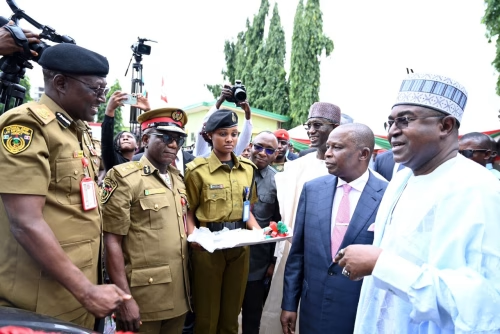


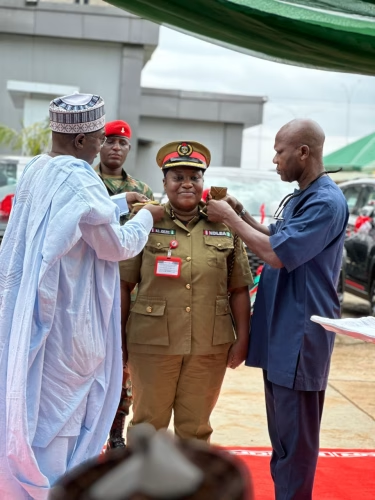


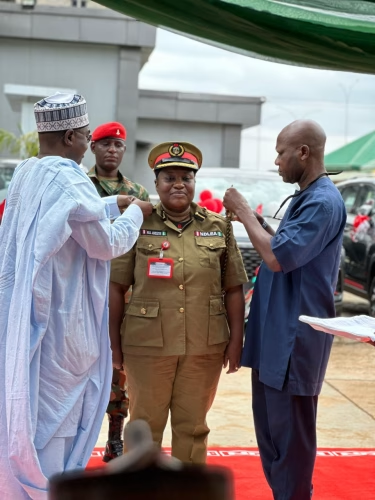

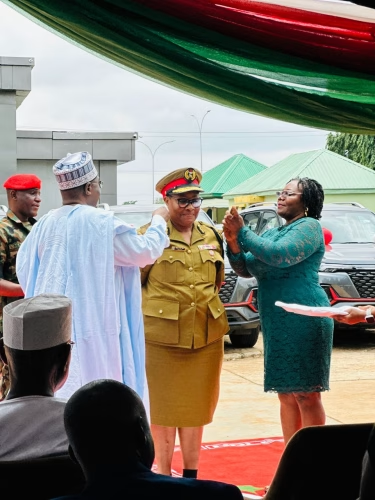
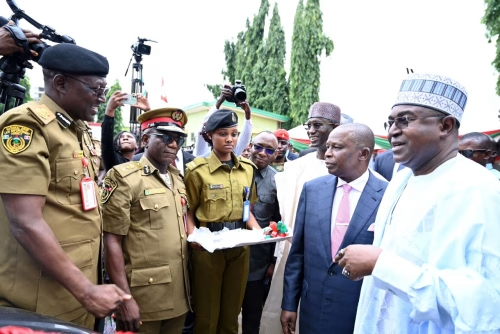
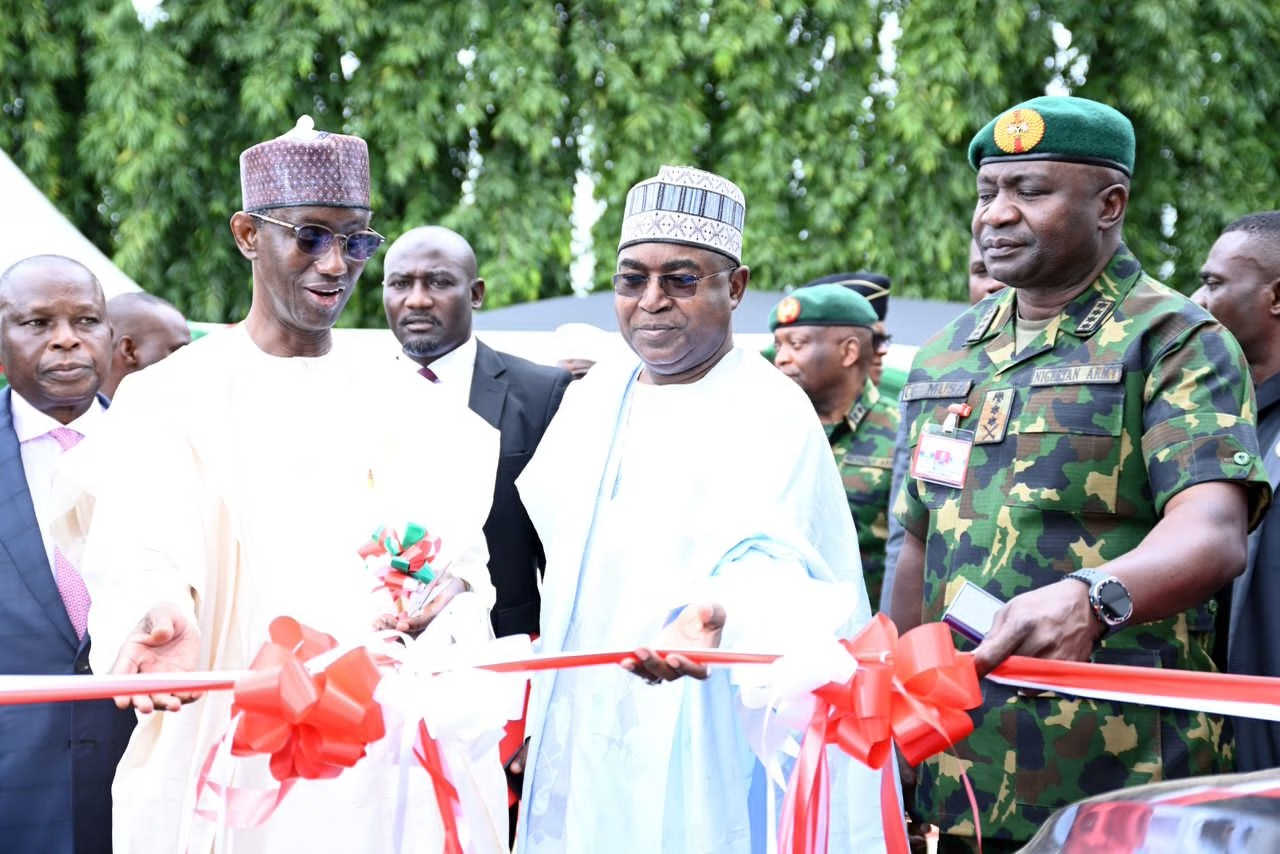











By Ayo Oyoze Baje
Quote:
“Technology helps solves the problem of access and quality in education. It can go where good teachers will refuse to go and give students the benefit of the same quality of education that the best schools enjoy.”
-Adeboye Oshinaga ( Co-founder Youngsoul
Disrupt Africa — December 2014 )
There must be something unique about the Nigerian DNA. That indomitable Deoxy-ribo-Nucleic-Acid is
creative, innovative, ingenious, resilient; solid and strong; always standing tall like the anthill
in the eye of the global academic storm. If in doubt, consider the recent feats of both Miss Faith Odunsi and Nafisa Aminu. On her part, the former, a 15 year – old girl who represented Nigeria at the Global Mathematics competition beat the representatives of countries such as the United States of America, USA, United Kingdom UK,China and several others to become the World Best. In fact so smart and confident she was at providing the answers that the judges who were awed by her fast and accurate answers dubbed her as “the Calculator”.
Not long after, the 17–year old Nafisa Abdullah Aminu, a student from Yobe State, Nigeria, emerged as the world’s best in English language skills at the 2025 TeenEagle Global Finals held in London, United Kingdom. Nafisa, who represented Nigeria through Nigerian Tulip International College (NTIC), Yobe, outperformed over 20,000 students from 69 countries, including many from native English-speaking nations.
Unable to hide his astonishment, world -renowned music star Akon.gushed: “This is not a fluke but confirms that Nigerians are one of the most intelligent people in the world”. That is the heart of the matter. The point being made here is that Nigeria boasts of some of the world’s best brains in virtually all fields of human endeavour.
For instance, Nigerian team of five girls won the $10,000 Junior Gold Awards at the 2018 Technovation World Challenge. The girls from Regina Pacis Secondary School, Onitsha, Anambra State Nigeria represented Nigeria and Africa at the World Technovation Challenge in the Silicon Valley in San Francisco, USA.The girls included Jessica Osita,
Promise Nnalue, Nwabuaku Ossai, Adaeze Onuigbo and
Vivian Okoye. The team, led by Uchenna Onwuamaegbu Ugwu defeated representatives of other technological giants including the USA, Spain, Turkey, Uzbekistan and China to clinch the gold medal.
In a similar technological achievement, back in 2015, Ogbonnaya Bassey’s Solarkobo power generator won the prestigious Young Innovators Prize as the best out of 124 applicants from 34 countries. The event was in Budapest, Hungary for the Telecommunications World event. But are we, as a nation making the best use of their astounding creative ingenuity? That is the million naira question. But the answer,sad to say is an emphatic “no”! That is where the challenge lies.
Mention the names, Professor Philip Emeagwali, Prof. Gabriel Oyibo, Samuel Achilefu, Babajide Alo, Ayodele Olaiya and Col. OveimoOvadje (Retd) and they ring a crisp-clear bell in the hallowed halls of creativity, globally. So are those of Jelani Aliyu, Brino Gilbert, Shehu Saleh Balani, Shaheed Adepoju,Seyi Oyesola and Ndubuisi Ekekwe. For instance, Emeagwali is regarded as one of the founding fathers of the internet as we know it today. For that feat he was awarded the Gordon Prize, normally reserved for 18 scientists. On his part, Gabriel Oyibo, the Kogi state -born genius who is an engineer, researches and physicist broke the thirty year jinx that Albert Einstein could not solve He unravelled the Grand Unified Field Theory. That was in 2002. He is an expert that the United States Aeronautics and Space Administration ( NASA ) based in Massachusetts Institute of Technology has immensely gained from.
In fact, it was the ground-breaking development of a set of high-technology cancer visualizing goggles made by the Nigeria -born Prof, Samuel Achilefu that assisted surgeons to view cancer cells in real -time while operating their patients. That won him the prestigious St.Louis Award in 2014. And another Nigerian, Jelani Aliyu who designed the Chevrolet Volt electric car that became General Motors’ leading brand based on its green energy policy now sweeping across the world.
Oh yes! It is good to note that our own Silas Adekunle, a 34-year-old Nigerian engineer, made history as the world’s highest-paid robotics engineer with MekaMon, the first intelligent gaming robot. Can you beat that? Not at all
What with another Nigerian-American, Dr. Osato Osemwengie, known as the “US Drone Builder,” boasting of 4 PhDs and 7 Master’s degrees. The true academic heavyweight, is now considered one of the most educated minds on the Planet Earth. Salute to this legend, a true Pride of Edo state. Most delighted as we are to be linked with these amazing talents with awesome capabilities, one’s persisting worry is that while the products of their creative ingenuity are positively impacting the techno-econonic space in other countries, Nigeria, their fatherland is being denied of such.
It would be recalled that yours truly has been consistently raising concern about this critical issue through several opinion essays since year 2002. First was: ‘ The Challenge of Local Intentions 1 and 2 ‘(Daily Times of October 18 and November 1, 2002 ) followed by ‘ Usually Our Best Brains’ 1 and 2 ( Daily Times, July 18 and August 1, 2003 ). That was before: ‘Turning Brain-drain to Economic Gain ( July 23, 2004). Between then and now there have been others such as ‘Making the Best Use of Our Best Brains’ ‘, ‘Maximizing the Potentials of Our Young Inventors and Jelani’s Challenge to Nigeria ‘ yet our political leaders are yet to see the wisdom in one’s clarion call!
Now is the time to start benefiting from Ogbonnaya Bassey’s Solarkobo, a renewable power generator that costs six times less than the normal fuel generator. So we should from the invention of Saheed Adepoju, the co-founder of Encipher Limited whose INYE-1, a 7-inch resistive screen tablet offers three hours of battery life and allows HDMI output to HDMI capable devices. And we should also gain from Ndubuisi Ezekwe’s microchips used in invasive surgical robots. He is the Founder of the First Atlantic Semiconductors and Microchips Ltd. The list goes on.
While these Nigerian-born inventors are making their marks on the global landscape there are salient questions for our political helmsmen and policy makers to find solutions to. Can we keep making waves in the field of technology with the abysmally low funding of education? Can we maximize the hidden potentials from our youths with some 13.2 million out of school children out there roaming the streets and used as cannon fodders for all manner of insurgency?How do we avoid the embarrassment of the recent technical glitches in JAMB and WAEC results that have brought forth the need to institute sustainable infrastructural development here in the education sector?
To move forward out of the wood we must take the all-important issue of educational development seriously. A law to make the 26% allocation to education, as recommended by UNESCO compulsory at both the state and federal government levels has become necessary. Also, the provision of funds for infrastructural development, recruitment of more teachers, their retraining on information technology and providing the enabling environment for talents to grow as well as funding of research institutes, and adequate grants for researches at the
universities have become the sin qua non to our technological and economic development.
This is yet another clarion call on the government in power, this time as led by President Bola Tinubu to constitute a bi-ennial Summit with our best brains in science and technology as innovators and inventors to fashion the solutions to our myriad of challenges, to benefit Nigerians.

By Ebinum Samuel
Commend Marwa’s leadership as Agency empowers strategic commands, formations with 48 new vehicles
It’s a milestone made possible by the President’s strategic support, says Marwa
The National Security Adviser Mallam Nuhu Ribadu has said that the administration of President Bola Ahmed Tinubu will continue to strengthen the National Drug Law Enforcement Agency (NDLEA) because of its strategic value to the success of the country’s national security architecture.
The NSA stated this in his remarks at the commissioning of 46 new vehicles distributed to strategic commands and formations of NDLEA on Wednesday 13th August 2025 at the Agency’s national headquarters in Abuja where he also commended the Chairman/Chief Executive Officer, Brig Gen Mohamed Buba Marwa (rtd) and his team for their sustained commitment, discipline and energy in transforming the NDLEA into a result-oriented force against one of the most destabilising threats to Nigeria’s national well-being: illicit drugs.
In his words, “I commend the Chairman, General Mohamed Buba Marwa, for his discipline, commitment, and transformative leadership. Under his watch, NDLEA has become a result-oriented force addressing the grave threats posed by illicit drugs that undermine our national security, social stability, and public health.

“This event is not just about commissioning vehicles, without the mobility to swiftly reach danger points, intercept traffickers and move resources where they are most needed, our fight is severely constrained. The link between drug trafficking and insecurity is systemic. Criminal gangs thrive on drug profits, Insurgents and armed groups fund their activities with it. Countless young Nigerians fall victim to addiction, with devastating consequences for families and communities.
“This is why the renewed Hope Agenda of Mr. President Bola Ahmed Tinubu prioritizes drug control as a pillar of our national security strategy. The President’s unwavering support through funding, inter-agency cooperation, and policy alignment has directly enabled today’s milestone.
“These vehicles will be deployed nationwide to amplify NDLEA’s operational presence, strengthen deterrence, and ensure that no trafficker escapes justice. As the lead agency for drug control, arrest, seizure, and investigation and prosecution, NDLEA will continue to receive the full backing of the Office of National Security Adviser, which will also coordinate its efforts with other security and regulatory agencies, including the National Police Force, Nigerian Customs Service, NAFDAC.

He challenged NDLEA officers to view the commissioning as a call to action: to do more, remain vigilant, act within the law and uphold the highest standards of professionalism. ““The NDLEA is not only building lives, but also restoring dignity and shaping national policy. In light of the pandemic, this commissioning is a call to action. Use these resources responsibly, act within the law, and remain vigilant.”
In his welcome address, the Chairman/Chief Executive of NDLEA said the event is symbolic of the continuous effort to reposition the Agency as a modern, efficient and respected organization as well as a reflection of the sustained commitment of the President Bola Ahmed Tinubu’s administration to equipping institutions that stand on the front line of the country’s national security and public health.
“To that extent, today’s event is a milestone, as NDLEA is now counted among a distinguished group of security and drug law enforcement agencies around the world that are not only visible in their operations but equally respected and making impacts”, Marwa noted.
He expressed appreciation to President Tinubu for his unwavering and strategic support for the Agency. “The procurement of these vehicles was made possible by the fiscal backing of this administration, which continues to demonstrate strong resolve in addressing the root causes of insecurity and social dislocation. Under the Renewed Hope Agenda, the President has prioritised national stability, institutional reform and the safety of every Nigerian life. That trust motivates us to deliver even more”, he stated.
While explaining the importance of the fight against substance abuse and illicit drug trafficking to national security, Marwa said “We know from both intelligence and experience that drug abuse and trafficking are central to many security challenges in the country. The link is undeniable: kidnapping, armed robbery, insurgency and cult violence are all fuelled by illicit substances. Drug trafficking emboldens perpetrators, strips away moral restraint and replaces hope with recklessness. No serious approach to national security can ignore drug control, and this is why we pursue our mandate with focus, determination and the results are there to show.”
He noted that in just two years of President Tinubu’s administration, the NDLEA has achieved significant results. “We have arrested 40,887 drug offenders, including 45 drug barons leading to the seizure of over 5.5 million kilograms of assorted illicit substances, all recovered from our streets, communities, warehouses, border routes and ports nationwide, with 704.445 hectares of cannabis farms, hidden deep in forests, destroyed. We have equally secured the conviction of 8,682 traffickers and kingpins alike, ensured their assets forfeitures to the Federal Government through the court process, thus sending a clear message that drug crimes attract legal consequences.
“Equally important is the fact that 24,173 drug users have been treated and rehabilitated in our 30 rehab centres located across the country while 8,698 War Against Drug Abuse (WADA) sensitisation activities aimed at preventing people from going into substance abuse were carried out in schools, worship centres, work places, motor parks, and communities among others within the same period. These clearly created a fair balance between our drug supply reduction and drug demand reduction efforts.”
He said the achievements of the past two years reflect both the resilience of the Agency’s personnel and its growing capacity. While noting that the fight against illicit drugs is far from over, the NDLEA boss said the “illicit drug economy continues to evolve, exploiting vulnerable youths, porous borders and sometimes complicit actors. To remain effective, our response must also evolve – with sharper intelligence, stronger community engagement and, critically, improved mobility and logistics.”
In his remarks, Attorney General of the Federation and Minister of Justice, Prince Lateef Fagbemi, SAN commended President Tinubu for making the achievements recorded by the leadership of Marwa at the NDLEA in the past two years possible. According to him, “Without an understanding President, it would be very difficult to have this type of gathering today. So, my first appreciation goes to him. There is a very, very close nexus between drug trafficking and all the crimes that we have.
“The Chairman has chronicled some of the effects of these illicit drugs. They embolden criminals. And when the thing wears off, then you discover that they are just ordinary mortals like you and I. And that is why attention ought to be given to this fight against illicit drugs. And when I follow NDLEA activities; the arrests, the fights they put on, you know, I’m always very happy. The credit, of course, goes to the leadership by Gen Marwa.
This is not your first time of doing this. You have done it elsewhere and you are doing it again. I’m always very pleased.
“And you know, of course, my position when it comes to NDLEA, whenever we are asked to showcase our report card, I’m very quick to say put NDLEA first. This is what you have done. So, I’m happy about what you are doing. And the morale of the staff you are boosting is very important. If there is no morale booster, you can’t get anything done.”
Also speaking, the Chief of Defence Staff, General Christopher Musa said “the NDLEA has consistently demonstrated courage, professionalism and resilience in confronting the threats posed by drugs and substance abuse in very challenging circumstances. The procurement of these operational vehicles is therefore a significant boost to the Agency’s operational response capability and overall effectiveness in the fight against drug trafficking and substance abuse. It is my firm belief that this investment will translate to greater deterrent to those who seek to profit from this destructive trade.”
In his goodwill message at the occasion, the Director General of the Bureau of Public Procurement, Dr. Adebowale Adedokun congratulated President Tinubu for putting the likes of Marwa in positions of leadership in various agencies. He said the event is a testament to Marwa’s leadership style and belief in Nigeria.
“Today marks a remarkable event in our lives. BPP is a worthy partner of NDLEA. The vehicles you see today were thoroughly done through due process. In fact, I am going to say NDLEA, for me, is an example for other agencies of government. So, I congratulate the entire management of NDLEA for leading the way. We can testify to you that these vehicles have gone through standardizations and they are meant for fit, for purpose.
A total of 38 SUVs were distributed to Zonal Commands, Strategic Commands and State Commands across the country while 10 sedan cars were given to 10 directorates.
No fewer than 15 newly promoted Commanders of Narcotics (CN) were decorated with their new rank of Assistant Commander General of Narcotics (ACGN) by the NDLEA boss at the end of the ceremony.

By Yomi Olusunle
The world felt like it was holding its breath. I stood in the cold fluorescent light at Manchester Airport, dragging a suitcase that weighed exactly 23 kilograms. My heart was heavy with dreams I wasn’t sure I had the right to say out loud. Taking those first steps on British soil was strange and electric. My skin tingled with possibility but my mind was stretched tight between excitement and fear.
Inside that suitcase were rolled-up sweaters and secondhand books. But more than that, it held the blueprint for a future I was determined to build. I hoped to become a woman who created her own happiness. I wanted to build something big that felt global but personal. Mostly, I wanted to prove to myself that joy was possible and waiting for me.
I was a Black woman, an immigrant, and a brand new Master’s student at Nottingham Trent University. I felt people watching me, quietly deciding where I fit or if I fit at all. I faced racism and sexism more times than I can count. I got sick and still kept going. When the world got heavy, I heard my parents’ voices across the ocean reminding me I was more than the limits others tried to put on me. Their love was my shield.
Some nights I stayed up late, writing articles for the World Economic Forum. I wasn’t sure if anyone was reading, but I kept writing anyway. Diane von Furstenberg’s words stayed with me. She said, “I knew the woman I wanted to be.” I decided I would know her too.
*Switzerland*
Almost five years later, July 2025 unfolded like a prayer answered. That month was full circle, a clear proof of God’s existence and his plans unfolding in ways I could never have scripted. I received an email from the World Economic Forum inviting me to the Global Shapers Annual Summit in Switzerland. They covered everything from travel to accommodation to meals. It was a dream come true and a milestone in my journey.
Switzerland was more than a place. It was a symbol of grace and second chances. It reminded me of Tina Turner’s story. Reinvention, courage, and finding love where the air is crisp and lakes are impossibly blue.
When I landed in Geneva, the city felt like it was made just for moments like mine. The Alps stood tall and proud, shining under the sun. The lakes stretched out so far and so blue they seemed to be holding my dreams in their reflection. The air smelled fresh and full of hope.
The summit gathered over 500 hubs from all over the world, with thousands of young leaders committed to making change. We shared stories, debated ideas, and brainstormed solutions for climate change, technology ethics, and social justice.
As the curator for the Birmingham hub, I carried the pride of my city and community. My role was to connect voices, encourage collaboration, and carry our stories forward. It was a responsibility I took seriously but also a reminder of how far I’d come.
Even surrounded by brilliance, the quiet moments stayed with me the most. Early mornings watching sunlight pour through my window, wandering cobbled streets older than my dreams, evenings by Lake Geneva where swans drifted slowly and reminded me that patience and grace still matter.
*Leeds and Doncaster*
Coming back to England, life found a new rhythm. The next chapters unfolded not just in cities, but in the people and moments that lived in them.
Leeds was where my not so little brother graduated. My parents flew in from Nigeria just to see him walk across that stage. Standing there with them, I felt how much every achievement means when your people are there to witness it.
Doncaster was slower, softer. I spent time with my aunt and cousins. We drank tea from mismatched mugs, laughed late into the night, and talked until the words ran out. My older brother, always ready for an adventure, pushed us toward the next story to live.
*London*
London was next, full of noise and life and family chaos.
We wandered Borough Market, chasing the smell of fresh bread and spices. In Peckham, I tried plantain ice cream for the first time. It was weird and wonderful. Sometimes joy is right outside your comfort zone.
There was laughter, heated debates, silly arguments, and hugs to make up for them all. London became the city where our family stories grew, messy and beautiful.
*Jaiye Collective*
If Switzerland was where my dreams flew high, *Jaiye Collective* is where my heart beats steady.
It started small, in my Birmingham living room, during days when depression and loneliness made the world feel heavy. I needed connection. I wanted a safe space where people could laugh and feel seen.
*Jaiye* was that space. At first, just a handful of friends and a playlist of our favorite songs. But it grew. People came from all over the UK, Ireland, Sweden, Paris, Abuja, and the United States. Every event felt like magic. Music, laughter, conversations that turned strangers into family.
The world can be cold and hard sometimes. Especially for immigrants like me. Politicians are tightening borders and stirring fear. There is more suspicion, more walls, and more questions about who belongs and who doesn’t. It can feel like a lonely fight just to be seen and heard.
But *Jaiye* is our act of warmth. Community here is a choice we make with every dance, hug, and moment of truth. When my parents watched me prepare for
one of our events, seeing their pride was like reaching another peak.
*Full Circle, and Still Walking*
From Switzerland’s mountains to Leeds’ graduation halls, Doncaster’s kitchens, London’s streets, and back to Birmingham’s glowing rooms, this journey is about hope that refuses to die and the people who cheer you on no matter what.
But even now, I have fears. I still feel lost sometimes. Loneliness still knocks on my door, uninvited but persistent. As I evolve, I’m outgrowing people and I’m losing friends. People who once knew me but don’t anymore. It’s a strange kind of sadness that no one talks about.
I worry about the future, about not living up to the woman I said I’d be. I worry about how to hold my dreams and my fears at the same time without breaking. Most of all, I worry about losing myself in the middle of it all.
But alongside all that, there’s this fire. A fierce excitement for the doors waiting to open and the stories still waiting to be told. I pray I never lose sight of who I am – the messy, soft, complicated, beautiful me. The one who dreams big, laughs loud, falls hard, and keeps standing up.
When I first rolled that suitcase onto unfamiliar soil, every step was a leap of faith. Now, I live inside the story I’m still writing. It’s full of risk, love, and my parents’ unshakable belief in me. Their support is the sound beneath every win, their pride the light that touches every summit.
Dreams planted in uncertain soil don’t just survive. They bloom into something breathtaking.
And I’m still blooming.
*Yomi Olusunle, MSc, British Psychogical Society (BPS) accredited pychologist, Board member and writer*
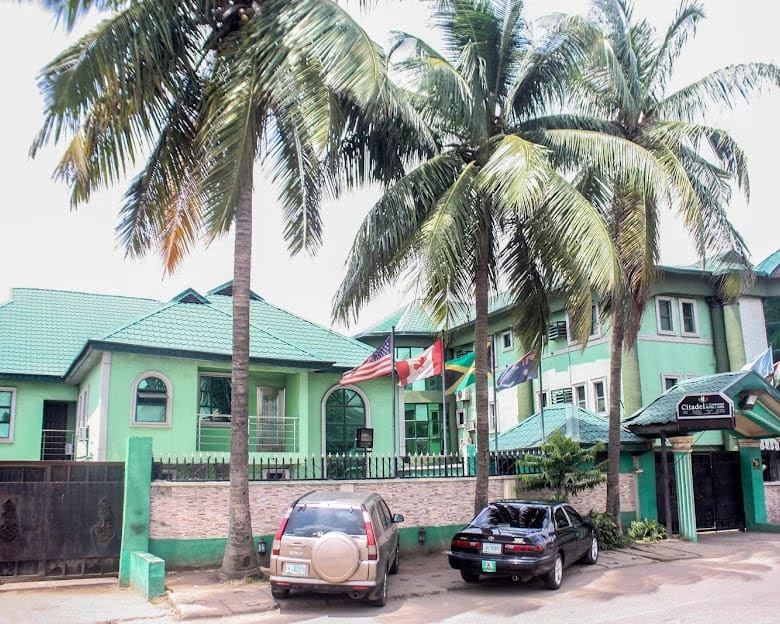
Located on 16 Adegbola Street, off Anifowoshe, Ikeja, Citadel De Continental Hotel & Suites, has redefines luxury, elegance and comfort in hospitality genre.
With elegant, stylist staff comporting 21st Century hospitality business, the hotel offers 24-hour power supply , functional and freezing airconditioners, swimming pool, exquisite restaurants, vibrant bars and conference spaces for events.
Citadel De Continental Hotel & Suites ensure guests protection through an unmatched security Architecture.

By Tunde Olusunle
Self-glorification by way of the conferment of verbose aliases and honorifics on themselves, has long been the vogue among Nigerian music artists. Those from the Yoruba country are most famous for this self-indulgence. First generation exemplars of the *juju* music genre, Ebenezer Remilekun Aremu Olasupo Obey-Fabiyi and Sunday Adeniyi Adegeye for instance, started out with simple stage names like *Ebenezer Obey* and *Sunny Ade,* easily discernible as emanating from their names at birth. Obey would subsequently metamorphose into *Chief Commander Ebenezer Obey* to underscore his self-proclaimed leadership of that brand of music. Sunny Ade on his own part became simply *King Sunny Ade,* acronymed as *KSA.* Cyril Bamidele Abiola Alele desired to play in the the big league, so he named himself *Admiral Dele Abiodun.* The succeeding generation of *juju* entertainers includes Omoba Segun Adewale from a royal family in Osogbo, and Oluwasina Peters, who both formed *Sir Shina Adewale and the Superstars.* The battle for turfs amongst Yoruba musicians of that milieu extended to Ismaila Dele Bello who adopted the stage name *Ahuja Bello.* The “Ahuja” prefix was derived from the name of a Japanese amplifier popular among the instrumental pool of musicians those years.
Practitioners of *fuji* music another popular specie of Yoruba music, took off from where their older colleagues began. Sikiru Ololade Ayinde Balogun, largely acclaimed as the pioneer of *fuji* music oscillated between two simple stage names, *Ayinde Barrister* and *Barry Wonder* respectively. His contemporary who projected the same variant of music, Abdulrasaq Kolawole Ilori opted for the stage emblem of *General Ayinla Kollington* to underscore his perceived superiority to other performing artists in his prototype of music. Wasiu Omogbolahan Adewale Ayinde, who was mentored by *Ayinde Barrister* was convinced he was the greatest *fuji* phenomenon ever. He sandwiched the acronym, *WA* derived from his name, Wasiu Ayinde, in between two topmost honorifics in royalty and military valour respectively. He profiled himself both a king in his art, and a “Marshal,” a superior title to that of “General” previously adopted by Kollington Ayinla. He turned out therefore as *King Wasiu Ayinde Marshal 1, (KWAM-1),* the figure “1” implying his presumed unassailable position as the headliner of his music genre. Such are the backstage theatrics among Nigerian artists which infused colour and amusement to the cultural scene.
Wasiu Ayinde has been dominant on Nigeria’s artistic, creative and musical scene within the last five decades. Just like every musical and performance prototype has spawned exemplars, fuji music has grown through generations and produced its fair share of professionals. Notable among them are Adewale Ayuba the *Bonsue fuji* exponent; Wasiu Alabi, *Pasuma Wonder;* Abass Akande, *Obesere;* *King/Dr* Saheed Osupa; *KS-1 Malaika;* Sakaniyu Ejire, Rahimi Ayinde, Fatai Adio, and Iyanda Sawaba. Wasiu Ayinde, however, has been able to carve a niche for himself at home and abroad, sought after for shows and events, especially cities with substantial populations of Yoruba people. He was guest of President Bola Tinubu in Aso Villa, within weeks of Tinubu’s inauguration and has performed at the seat of government. Such has been the upward trajectory of Wasiu Ayinde over several years.
Fate thrust him from the facelessness of the dust, mud, *spyrogyra-ed* neighbourhoods of Mushin, Maroko, Makoko and similar ghettos to the fore of contemporary pop culture with all its appurtenances. Fame and fortune have come with his success. His children attend some of the best schools across the world, his landed addresses, sprawl at home and abroad. Not forgetting long columns of consorts flinging voluptuous busts and bursting buttocks at his face in every performance. KWAM-1 dines with kings, he wines with political deities. When he lost his mother earlier this year, no less a personality than President Bola Tinubu placed a call to commiserate with him on his loss. Wasiu Ayinde made a public show of the call, placed the President on speaker phone, reported the dialogue and hoisted it on the internet.
Beyond flaunting himself an artistic royal and has festooned himself with the necklaces and beads, Wasiu Ayinde has indeed been decorated and decked by traditional titles nestling in the one dozen territory. Back in 1999, the former *Oba of Lagos,* Oba Adeyinka Oyekan, installed him the *Oluomo of Lagos,* prime son of the palace. Two decades later, the immediate past *Alaafin of Oyo,* Oba Lamidi Adeyemi adorned him with the title of *Maiyegun* of Yoruba land. The recently transited *Awujale of Ijebu land,* Oba Sikiru Adetona in 2023, made him *Olori Omo-Oba of Akile, Ijebu land,* primus inter pares amongst the princes of Ijebu land. A year before that, former President Muhammadu Buhari had conferred Wasiu Ayinde with the national honour of Member of the Order of the Niger, (MON). He is 68 and already knocking on the doors of the club of septuagenarian senior citizens. Literally speaking, Ayinde’s neck bears the the lead weight of inevitable responsibility.
KWAM-1 overreached himself outside the perimeters of the palace where he is accustomed a pampering protocol, complete with the red carpet, Tuesday August 5, 2025. He chose a wrong place, the marketplace of the full view of the global eye, to throw the kind of tantrums which will haunt him into the twilight of his life and career. Running late for an early flight, out of Abuja, the federal capital, to Lagos, Wasiu Ayinde, bearing a gold flask containing some liquid, attempted to get on the airplane with his flask. Aviation officials explained to him that he would not be allowed to board the flight with a vessel which contained more than 100 millilitres of liquid. Ayinde, whose renditions are renowned for self-adulating panegyrics, sought to fling himself in the face of the aviation officials.
Oluranti Ogoyi, the delectable, self-confident female Captain of the flight who was running late for the prosecution of her first movement for the day, left the cockpit and attempted to mediate. Ayinde viewed her with a condescending mien which asked the *ta ni eleyi,* who the hell is this question even without speaking. “Who is this brat wanting to know what KWAM-1 is carrying in his gold flask?” Aviation officials maintain Ayinde had spirit in the flask, the singer maintains it was water. Whatever it was, he splashed the content from the vessel on Captain Ogoyi who was rightly and expectedly incensed. This princess will not fly this disrespectful, boastful, arrogant, errant king. Aircraft door shut for procedures, Wasiu Ayinde was not done. He made frantic calls, ostensibly to the airline owner, Kunle Soname, who, coincidentally, is his kinsman from Ijebu land.
He rested his arm on the nose of the plane, the way you would rest on your car, as if saying “this aircraft is going nowhere if I’m not boarded.” Aviation personnel continued to appeal to him not to obstruct the flight or put himself in harm’s way. If nobody has told Captain Oluranti Ogoyi this, let me express my wholehearted admiration for her no-nonsense resolve to prosecute her flight despite the misconduct of a musician weighed down by an oversized ego. Taxiing from the parking point of her plane after being cleared as we hear, irrespective of whether some vainglorious music monarch desired a haircut with the razor-sharp, metal wing of her plane, was the right thing to do. I commend her courage in the face of brazen intimidation. Indeed, the Nigerian Civil Aviation Authority, (NCAA), would do well to reinstate her licence and that of her co-pilot, Ivan Iloba, confiscated in the immediate aftermath of the KWAM-1 saga, expeditiously. They are young professionals who should be encouraged and further mentored.
Aviation Minister, Festus Keyamo, moved swiftly to issue a six-month “no fly” ban on Ayinde. He is not to be found within the precincts of any Nigerian airport, until February 6, 2026. But things may just get worse for him. The NCAA announced at the weekend that KWAM-1’s “no fly” ban is indefinite. This is just as investigations into the Abuja airport incident have been activated. If global best practices are followed, KWAM-1 may pay a few visits to consultant psychiatrists to determine the true state of his mental health. He will receive generous doses of antidepressants and be put to sleep again and again, to help manage his temperament. At the end of the day, if gold standard penalties are applied, he could be slapped with a two-year sentence, which could see him commemorate his 70th birthday in 2027, in Kuje prison, in Abuja.
As the old saying goes, to whom much is given, much is expected. For whatever contributions Wasiu Ayinde has made to the cultural sector, domestically and globally, it was totally beneath him to put his country to ridicule the way he did on Tuesday August 5. Before he came onto the entertainment scene, there were the Ebenezer Obeys, the Sunny Ades, the Dele Abioduns, among other living legends. Younger stars like the *Sunny Nejis,* *Dbanjs,* *Wande Coals,* *9ices,* *Burna Boys,* *Wizkids,* *Davidos,* *Tems’,* *Tiwa Savages,* *Rhemas,* *Asakes,* *Flavours,* pay KWAM-1 due obeisance whenever and wherever they encounter him. He has disappointed them by this runway misdemeanor.
The virus of Ayinde’s show of ignominy is sadly catching on. An incident where a female traveller on an *Ibom Air* flight in Lagos assaulted a flight hostess who reportedly dared request her to switch off her telephone just before takeoff, has been trending since yesterday. The said lady equally harassed intervening aviation officials who demonstrated unusual restraint in her moment of madness. That is the KWAM-1 bug catching on. Let’s hope the International Civil Aviation Organisation, (ICAO), does not flag Nigeria as potential aviation risk zone, after recent upgrades in global safety ratings. It is good KWAM-1 has broadcast an apology and espoused further on this in the lyrics of a weekend performance in Lagos, openly pleading for forgiveness. But then a threat which he recorded, in which he vowed to take his pound of flesh, on the business of Kunle Soname, the proprietor of *Valuejet* the airline with which he had a brawl, is trending. Where is the place of Soname an investor in Ayinde’s Abuja horror showing? Or is there something we are missing?
*Tunde Olusunle, PhD, Fellow of the Association of Nigerian Authors, (FANA), is an Adjunct Professor of Creative Writing at the University of Abuja*

The management of the Olusegun Obasanjo Presidential Library (OOPL) in Abeokuta has accused operatives of the Economic and Financial Crimes Commission (EFCC) of invading its premises in the early hours of Sunday, August 10, 2025, in what it described as a “Gestapo-like” operation.
In a statement issued on Sunday made available to POLITICS NIGERIA, the OOPL management alleged that at about 2 a.m., over 50 armed men, purportedly EFCC agents led by one “Olapade,” stormed the complex, shooting into the air and threatening to kill people.
The raid, they claimed, caused chaos and panic among guests and residents, leaving several people injured while trying to flee.
According to the statement, “This morning, at about 2 am, the OOPL premises were invaded by a Gestapo-like gang of over 50 armed men, shootng guns, threatening to kill people, and purported to be from the Economic and Financial Crimes Commission (EFCC). The invasion, led by one “Olapade” caused serious panic and chaos, leading to serious injuries among participants trying to escape the shooting and near carnage that resulted, and causing terror among residents on the site.
2. On inquiry by phone, the “Olapade” informed the Managing Director of the OOPL establishment, Mr. Vitalis Ortese, that they were acting on intelligence about a private event in the amusement facility of the complex. They also informed management that the police have been duly informed of the operation.
3. It should be noted that the event was a private event that had been widely attended by members of the public for days prior.
4. It should also be noted that both the police officers stationed at the OOPL gates and the additional police sent from the Kemta Police Station, as requested by the organizers of the event and management, stated that they were NOT informed of any planned operation by the EFCC, and neither did they present any warrant. And when the armed men were accosted by OOPL security and assisting police officers, they simply retorted, “We are doing our job”.
5. Management wishes to state that this action by the EFCC is a clear case of invasion of private property, infringement of OOPL rights as corporate citizens, and indeed stark and blatant violation of the rights of the people who so gathered for the event.
6. Management has commenced its investigation of the invasion and will take up the matter with the highest authorities, including the EFCC, the police, and the Department of State Security,DSS.
7. In the meantime, management demands an explanation of these impudent accounts from the Commission and an apology from the EFCC authorities for the infringement of its rights, to all those who gathered, and those who sustained serious injuries from the gangster like induced chaos. Failure for which the management will be compelled to seek redress and sanctions as appropriate.
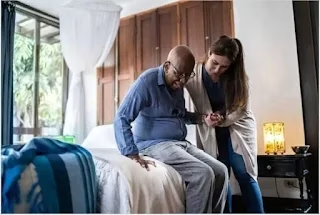
The Presidency has dismissed speculations about the health of President Bola Ahmed Tinubu, following reports that he was bedridden and being considered for urgent medical evacuation abroad.
The International Centre for Investigative Reporting (ICIR) had quoted sources alleging that the President had been indisposed for several days, resulting in his absence from key state functions. Vice President, Kashim Shettima has represented him at some official engagements in recent days.
The report further claimed that several of Tinubu’s scheduled activities were cancelled, with the remainder of his weekly agenda cleared to allow his medical team to closely monitor his condition.
However, Special Adviser to the President on Information and Strategy, Bayo Onanuga, described the claims as baseless.
“People just tell you all kinds of rumours that have no basis at all. He was in his office yesterday (August 5). I was with him. I went to see him. He came to work,” Onanuga told ICIR.
Speaking later to Daily Trust, he insisted nothing was wrong with the President.
“There is nothing wrong with the president, he is okay. He can choose to work from home. He can choose to work from anywhere. I tell you nothing is wrong with the president,” he said.
According to ICIR, Tinubu was last seen in public on Friday, August 1, at the opening of the Progressive Media Summit, where he encouraged young Nigerians in the digital space to utilise their platforms for national progress.
Days earlier, on July 29, the President hosted the victorious Super Falcons at the Presidential Villa after their triumph at the WAFCON in Morocco. He congratulated the players and coaches, standing for an extended period while announcing generous rewards.
However, his absence at a similar reception for the D’Tigress on August 3, where Shettima stood in, raised fresh questions.
Despite his absence from public events, the presidency has continued to release official statements. On August 6, Tinubu directed the rollout of free healthcare for low-income retirees and an increase in pensions.
The accompanying photograph with PenCom DG Omolola Oloworaran was taken days earlier at the President’s private residence, not his office.
That same day, the President issued a condolence message to Ghana over the death of Defence Minister Edward Omane Boamah, Environment Minister Ibrahim Murtala Muhammed, and others in a tragic air crash.
ICIR also reported that the weekly Federal Executive Council (FEC) meeting was not held last week, further fueling speculation.
The Minister of Information and National Orientation, Mohammed Idris, had told reporters last Thursday that the next FEC meeting would be held on August 6.
The ICIR gathered that the ministers and members of the council had been reached to inform them of the postponement, as none of them came around the villa during the usual hours of the meeting.
Onanuga had clarified that no FEC was scheduled for Monday, while the session on Wednesday was postponed by the President.
He said, “Yes, he postponed it. It’s not an issue. There is no certain time for FEC. The FEC meeting can be held on Monday, it can be held on Wednesday. It can be held on a Thursday.”
The ICIR investigations revealed that several high-level meetings were quietly shelved. Among them was a scheduled engagement with close associates of former President Muhammadu Buhari within the All Progressives Congress (APC), initially set for the afternoon of Tuesday, August 5. The meeting was abruptly cancelled.
When asked why Tinubu skipped the D’Tigress event, Onanuga had told the ICIR, “Why must he be at all functions? Is it compulsory he must be at all functions? He has a deputy. He can delegate.”
On his lack of public appearances, he said, “I said he was in the office yesterday (August 5). I was with him. Do you want him to be doing a public parade or something?”


Nollywood veteran, Bimbo Akintola, has spoken candidly about her personal life, admitting she is unmarried and has no children at the age of 52.
In a recent chat with Pulse Nigeria, when asked whether she had kids, the actress replied, “No, I don’t unfortunately.” She also confirmed, “I’m 52 years old. Born 1973, May 5th.”
On the subject of her relationship status, Akintola made it clear that her being single was not deliberate. “Not chosen oo,” she stated.
Since making her screen debut in 1995 in Owo Blow alongside Femi Adebayo, Akintola has become one of the most recognisable faces in Nigerian cinema. She went on to feature in Out of Bounds (1997) with Richard Mofe Damijo, cementing her place in the industry.
Born in Lagos, she attended Maryland Convent Private School and Command Day Secondary School before earning a degree in Theatre Arts from the University of Ibadan.
Most recently, Akintola portrayed Inspector Mo Ogunlesi in Kemi Adetiba’s series To Kill a Monkey.